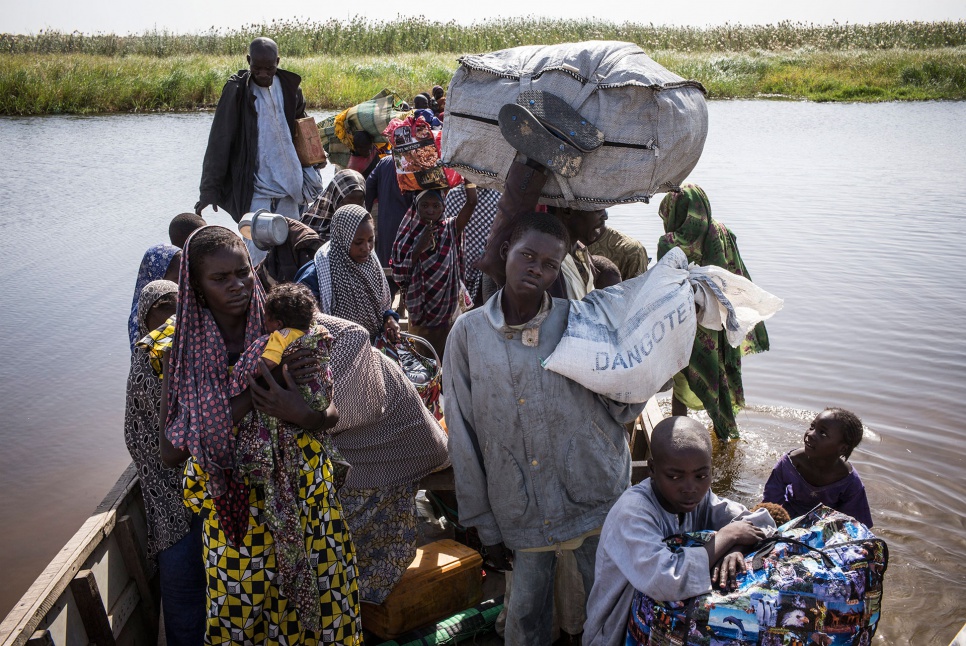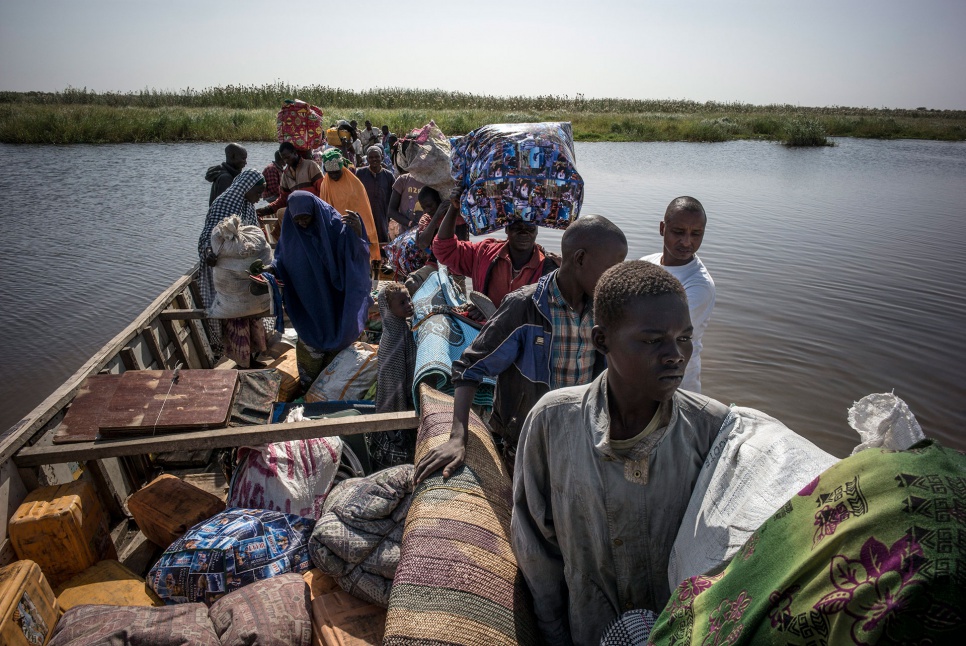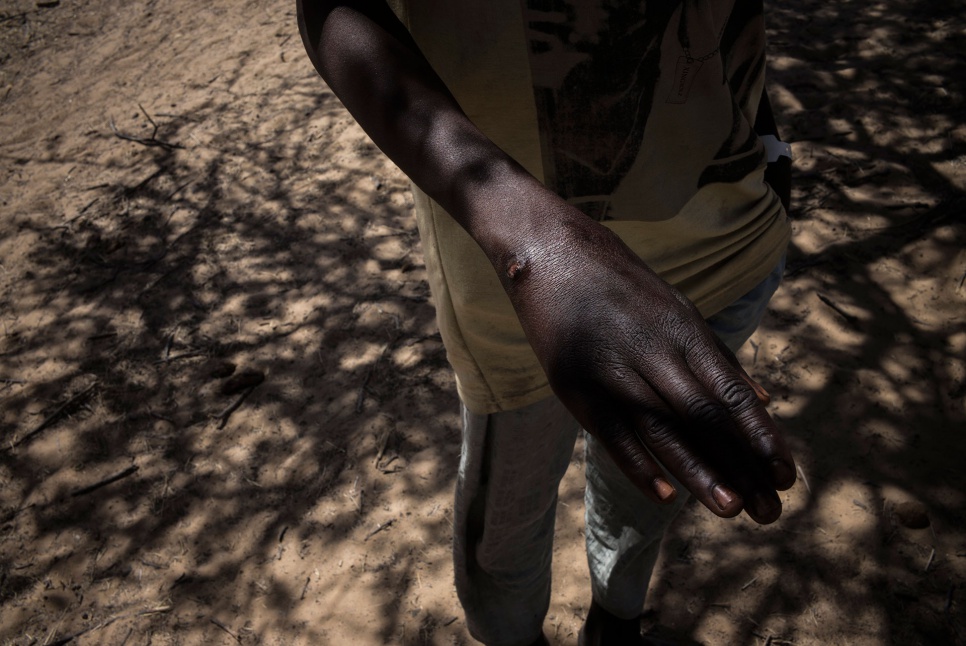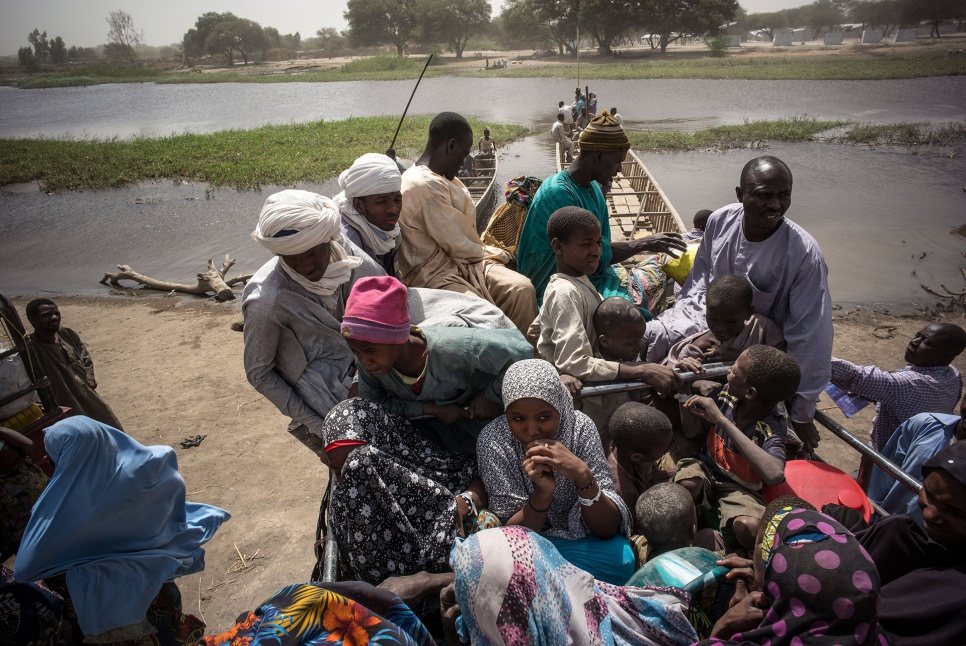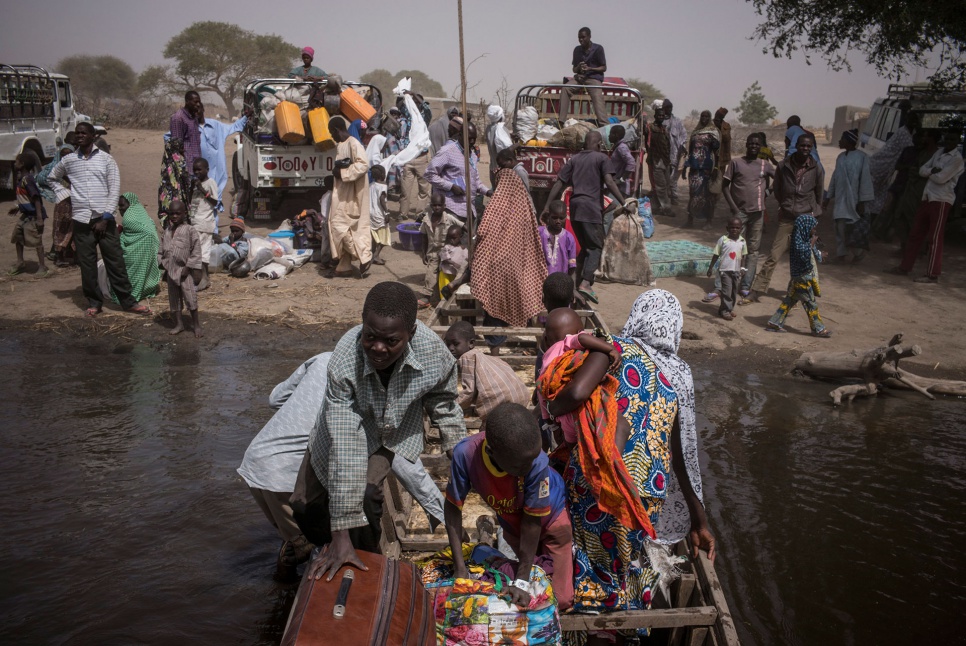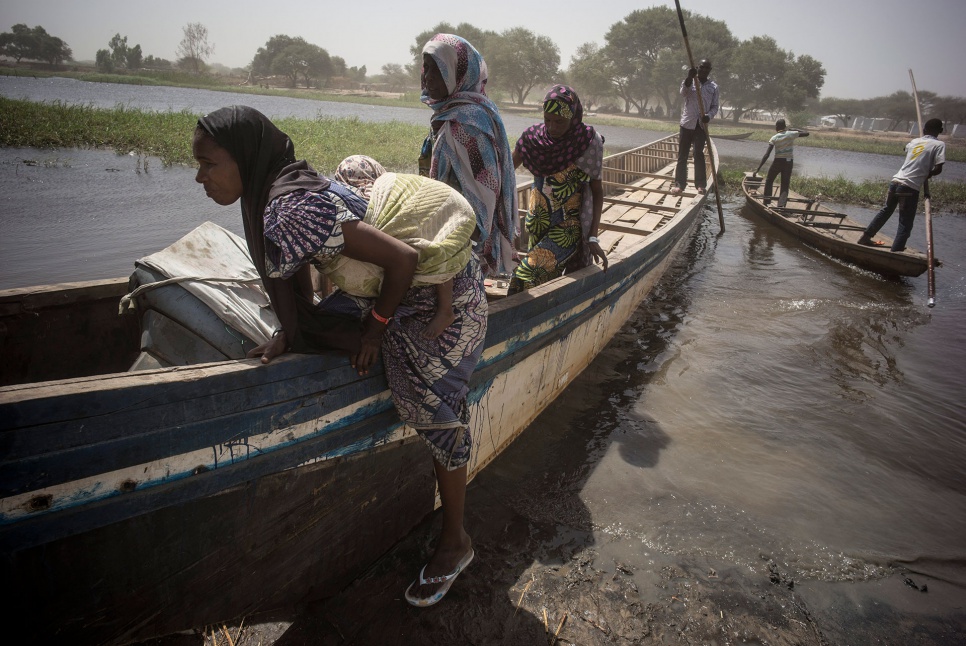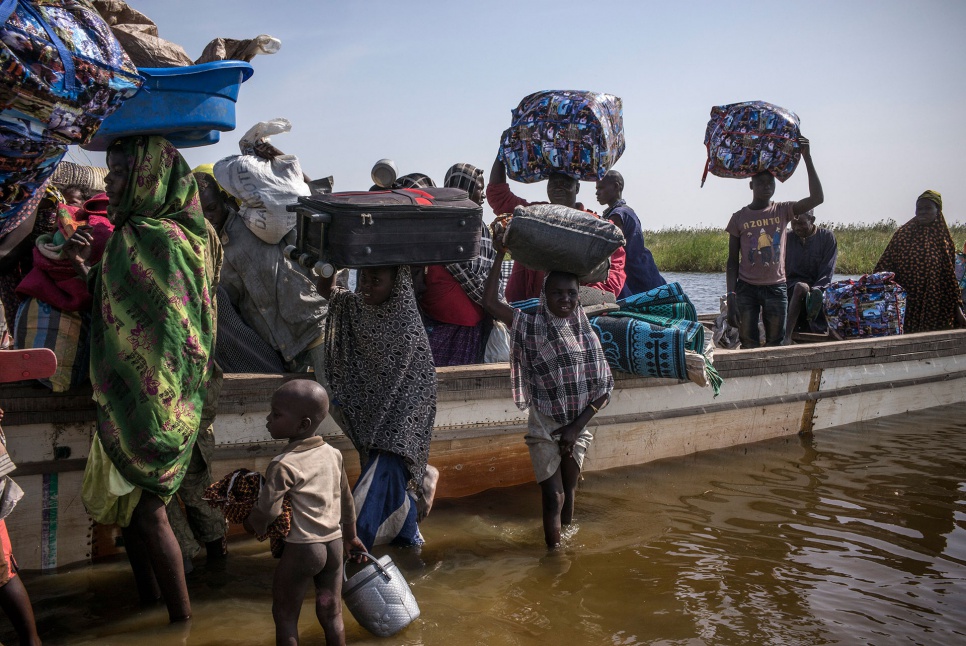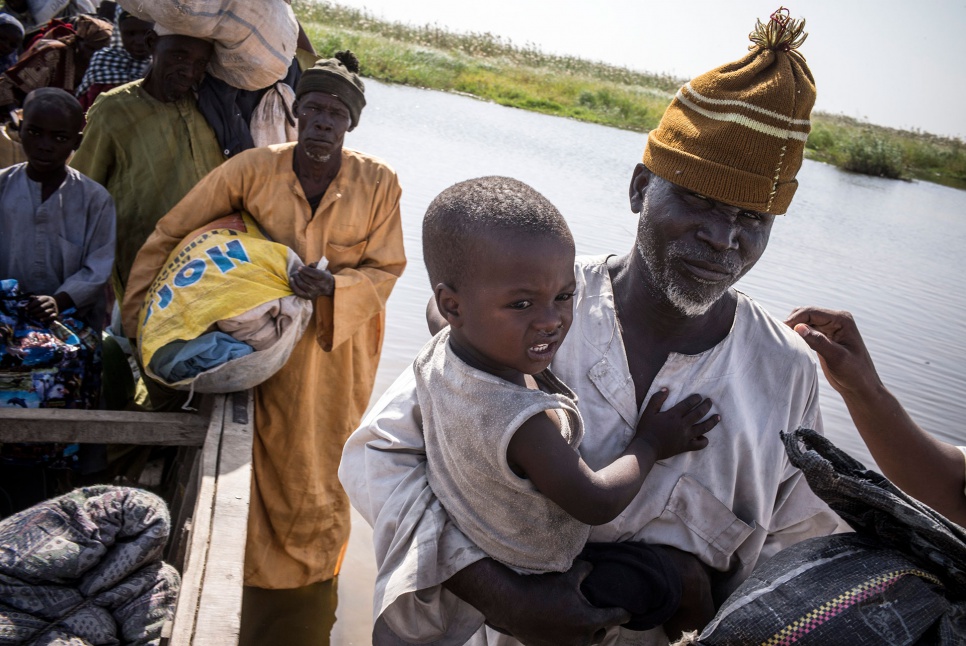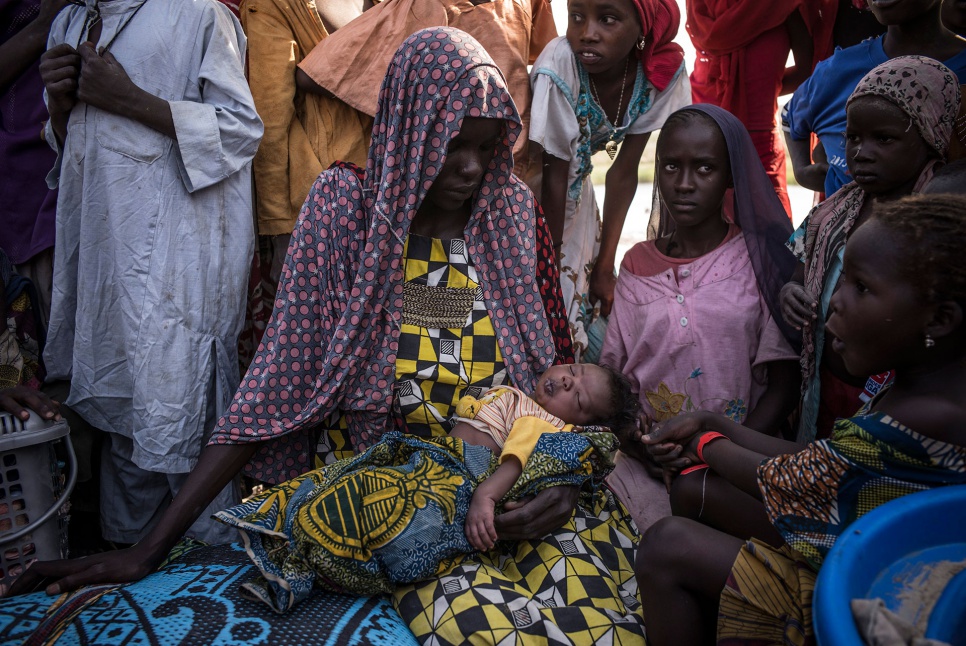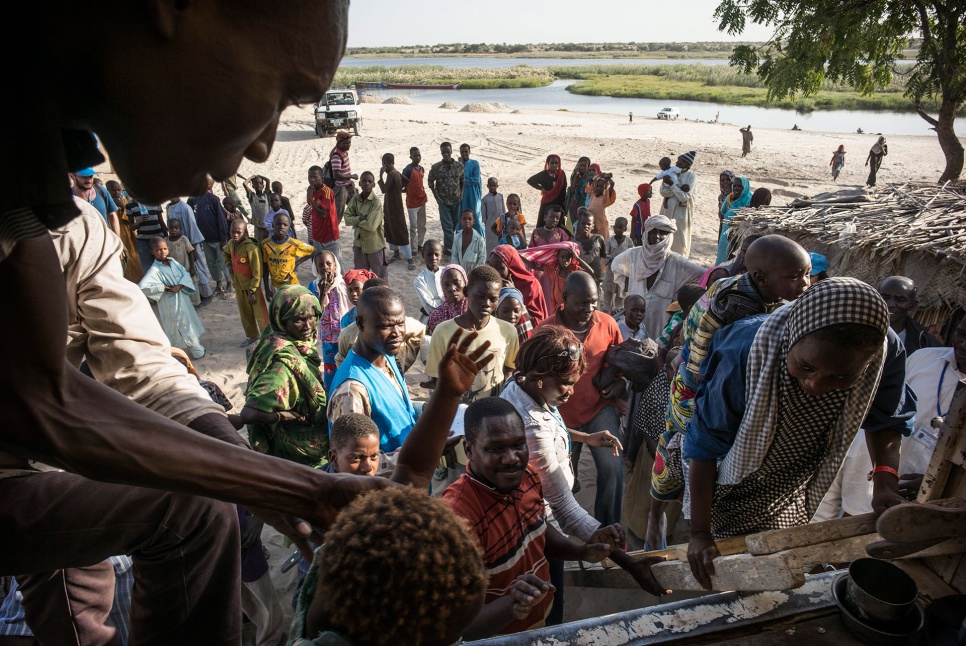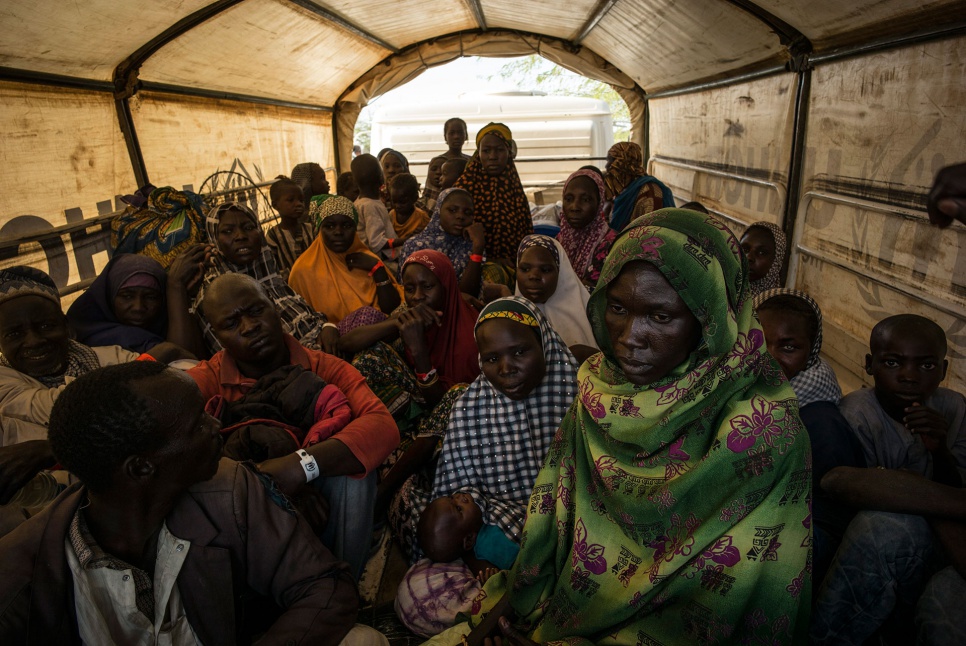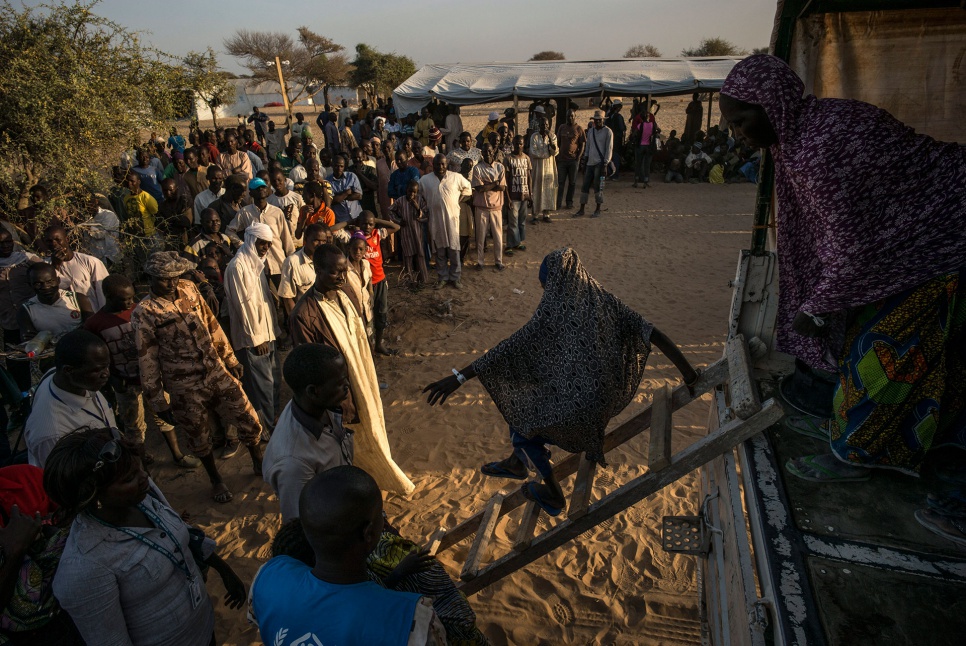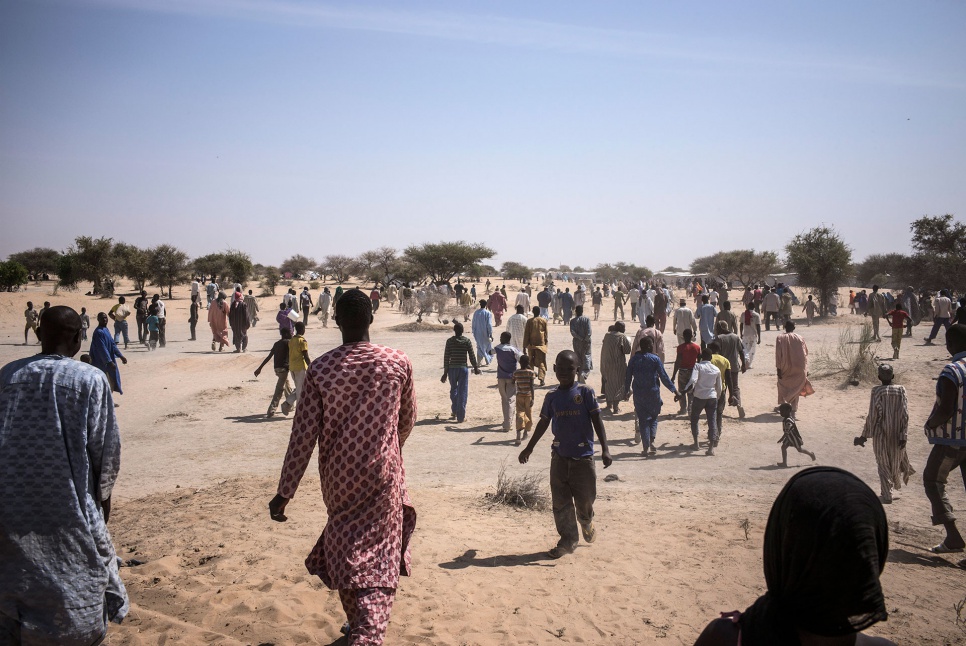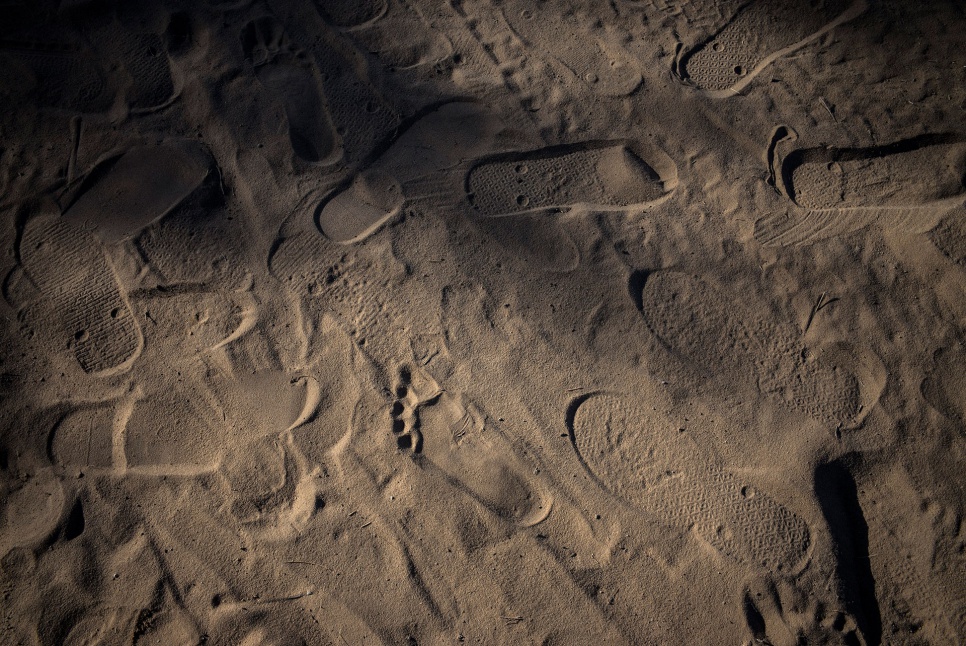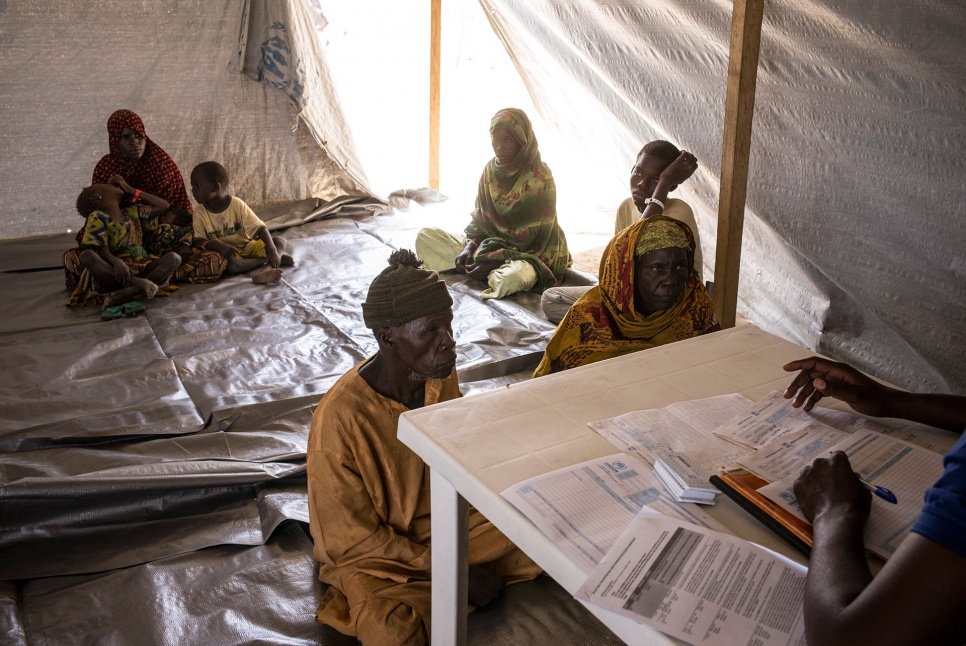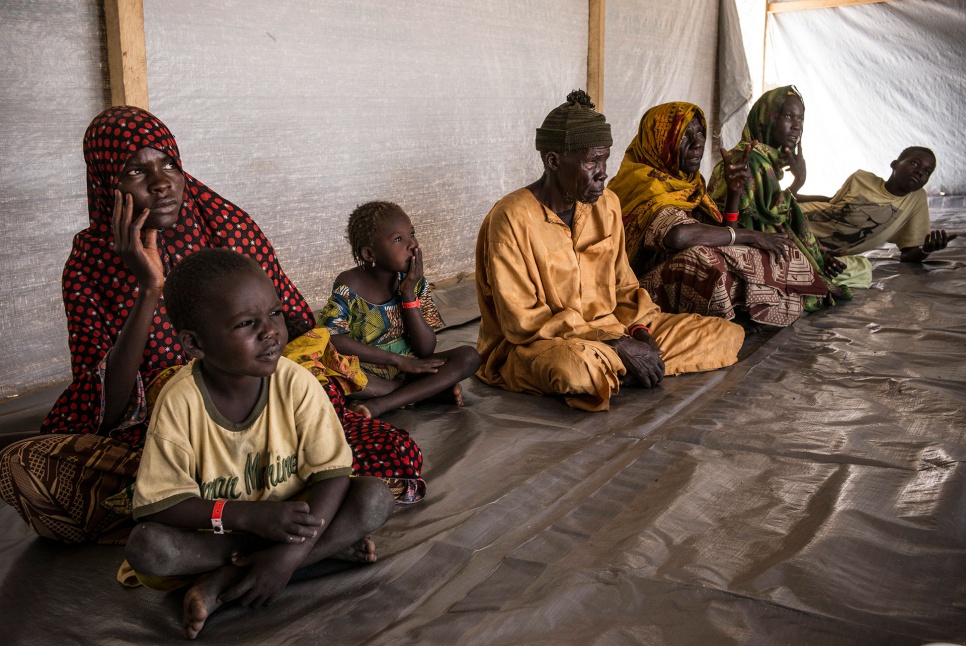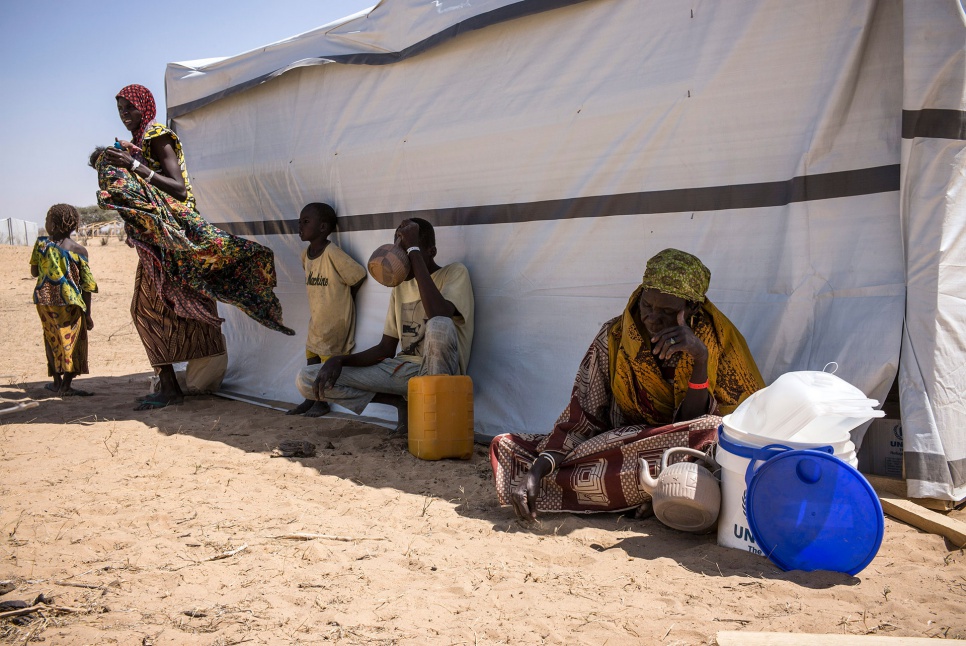On the Other Side of the Lake
When the fighting in north-eastern Nigeria came to Baga town, thousands of survivors fled across Lake Chad, searching for safety.
Survivors of the attack on Baga move to a safer location in Chad.
© UNHCR/Olivier Laban-Mattei
A long canoe slips through the reeds on the calm waters of Lake Chad. The faces on board are tense, including that of 16-year-old Alhaji Haoudou, who is eager to jump onto the sandy shores of Baga Sola, Chad. One of more than 80 passengers, he fled Nigeria weeks earlier, throwing himself into an overloaded vessel following a massacre back home on 3 January.
That day, fighters burned down a dozen villages as well as the port town of Baga, on the western shore of Africa's fourth largest lake. Several dozen people – and perhaps several hundred, according to some accounts – perished in a few days. Others drowned while crossing the lake.
This boat is the last chartered by Chadian authorities and UNHCR to collect some 7,000 survivors scattered over countless islets, patches of sand that appear to have crumbled away from the mainland, much like icebergs released from a glacier. Conditions there are precarious, and many refugees only survive with the help of a few local residents. Their relocation to Dar-es-Salam, a site planted in an arid scrubland 75 kilometres from the Nigerian border, is an urgent, but challenging, humanitarian priority.
Fine scarifications run down Alhaji's face and accentuate his slim figure. With a jute bag hanging from his left shoulder and his right arm dangling in the air, he emerges from the throng of survivors. As soon as he reaches the beach, he is rewarded with a bracelet stamped with the UNHCR logo. Alhaji is now officially a refugee. His bundle is sprayed with diluted bleach, his feet disinfected in a basin. The authorities are vigilant, worried that fighters might try to slip in among the passengers. Gendarmes search every bundle, every carton. Confiscated machetes and other vital agricultural tools, seen as potential weapons, soon pile up beside them.
Ten members of Alhaji's family fled, but only seven have arrived here today: Alhaji, his grandparents, mother, aunt and three little cousins. Alhaji's grandmother, 51-year-old Falmata Mohamed, is veiled in blue and wears gold earrings. She makes wide gestures with her arms to describe the confusion that followed the onslaught. "Tara-ta-ta," she sputters, grabbing Alhaji's forearm, mimicking a machine gun. One of the bullets pierced his right wrist, and the sore is now oozing. Then Falmata points to her granddaughter. Barely one month old, the little girl was born in the bush, a week after the attack. She nestles in her mother's cloak. The entire family looks exhausted. None of them can manage to give a clear account of the events. Time seems to have faded out there on the lake.

On the Other Side of the Lake: Kalthouma Abakar, Alhaji's 22-year-old aunt, gave birth in the bush after fleeing an attack on her village in north-eastern Nigeria.
A short time later, a truck approaches. It will carry these men, women and children to their new home, the Dar-es-Salam site, 12 kilometres away. The engine rattles and bodies collide in a mess of mats and cartons. The silence is striking, a mixture of apprehension and anxiety. As the miles go by, a barren wasteland dotted with huts comes into view. Here, a draped silhouette mounts a camel. There, goats nibble on rare acacias. This region, a nine-hour track drive from the capital, is as poor as it is isolated. Its human development index is among the lowest in Chad, a country which itself ranks among the least developed in the world. But it is safer, much safer, than the place they fled. The atmosphere grows more relaxed. Some even laugh. "I never thought we would make it this far," utters an incredulous father.
A crowd awaits the newcomers upon their arrival, hoping to greet missing loved ones. Soon, though, many young faces can't hide their disappointment. The site is now home to 150 children who lost their parents or were separated from them during the attacks. A man grabs a bullhorn and calls out in Hausa: "Welcome to you all! Welcome!" Then the multitude disperses, as night falls on the refugee settlement. Alhaji and his family head to the community shelters. This is where they will spend their first night in Dar-es-Salam. The last bags are unloaded, one of them carrying a tag indicating the point of departure: "Maiduguri, Borno State, Nigeria."
Close to 1 million people have been displaced within north-eastern Nigeria since May 2013. More than 100,000 have fled to Niger, as many as 66,000 to Cameroon and at least 18,000 to Chad. The crisis today is a regional one.
Alhaji and his family now feel able to recount the horror they endured. From the temporary shelter that UNHCR has just assigned them, hardly more than a tarpaulin stretched over a wooden structure, the grandmother recalls how fighters "stormed in early in the morning, as we were cooking. Those men were frenzied, shooting in all directions."
"It was everyone for one's self. We were all running for our lives," adds Alhaji's aunt, Kalthouma Abakar, 22.
"I rubbed my hands, my feet. I realised I was going to live."
Women managed to escape. But the men were gathered in the central square of their village, on the outskirts of Baga. Eleven teenagers were lined up in front of their elders. Alhaji was tied up, on his knees, his face against the ground. The rifles fired and one of the bullets pierced the boy's wrist. All believed him dead, including his grandfather. "I thought it was our turn, but the Boko Haram went away," the old man says, bewildered. He rushed to Alhaji, shook the boy's body. "I rubbed my hands, my feet. I realised I was going to live," explains Alhaji in a flat voice, his gaze empty. Like him, another young man survived miraculously.
The family wandered for two days in the bush, with no food or water. Gunshots followed them, and families were split up. Soon Alhaji's aunt went into labour, giving birth to Falmata, named in honour of the improvised midwife: her grandmother. "I did not even have hot water to wash the baby," says the young mother.
The group continued on a canoe, making their way among the reeds, hopping from island to island. For two weeks, they fed on fish and drank lake water. Sometimes they propelled themselves with a pole, or sank up to their waists in the marshy, drying lake trying to push the vessel. Their meanderings led them to a village. A motorised canoe belonging to the Chadian authorities made a stop there. They got on board.
This morning, the family woke up in their new home. They explore their living space. In one month, Dar-es-Salam has risen from the sands but the essential facilities are already available. Wells, showers and toilets are only a few metres away. A doctor from the Red Cross of Chad will treat Alhaji's hand. The two tots, four and six years old, will start a school life as soon as the school building is completed. And to help them settle, UNHCR has provided the family with mats, blankets or cookware.
The World Food Programme (WFP) provides them with their first food allocation: 8.5 kilogram of grain, 1 kilogram of green peas, oil and salt, per person. They will have to make it last for 20 days. For these former fishermen, farmers and herders, the rations come as a shock. They were used to a diversified diet. "Back home, the pot was always simmering," one of the refugees points out. Thus, the day before, anger erupted. The refugees refused to accept "such small quantities of millet, a cereal that we don't even know how to cook and are unable to grind," grumbles one of them. WFP and UNHCR promise to improve the rations on the next allocation. Everyone must make concessions, for the crisis is huge. More than 3,000 refugees already inhabit the site. And many more are expected.
Dar-es-Salam has been designed for a maximum of 10,000 people. The concentration of all the refugees in a single location is the only way to assist them in an areas as remote as this one. This is why joint missions by UNHCR and the Chadian Commission for the Reception and Reintegration of Refugees comb the area in jeeps and canoes to convince exiles to join the settlement at Dar-es-Salam. The aim is also to guarantee their safety from deadly incursions into Chad. Just days after Alhaji's family was relocated from Ngouboua to Dar-es-Salam, Ngouboua came under attack. Three-quarters of the town was burnt down and 10 people were reported killed. Dozens of refugees made for the bush again. Others have flocked to Dar-es-Salam.
"Here we will rebuild our lives," Alhaji's grandmother vows.
For Alhaji and his family, returning is not an option. "Here we will rebuild our lives," promises the grandmother. Provided they find the necessary means of subsistence. The family has lost their cattle and nothing grows on the sand swept in this season by the harmattan, the dry wind from the Sahara. As for fishing, the main livelihood for the exiles, its practise is strictly regulated in Chad. "If we find the necessary funds, we could pay for the licenses required by the authorities and even help refugees to buy nets," says Baiwong Mohamat, who heads UNHCR's office in Baga Sola. "We are also in discussion with local chiefs on the use of some fertile land bordering the lake. We could finance the purchase of seeds."
More than anything, though, Alhaji's family is concerned about their safety from future attacks by militants. "As long as we don't get attacked . . . we will stay here," says Falmata, Alhaji's grandmother. The family is especially looking forward to the return of its men. Last they heard, they were in Ngouboua, the burnt-down village. In Arabic, Dar-es-Salam means the "House of Peace." All pray that it may be true.

